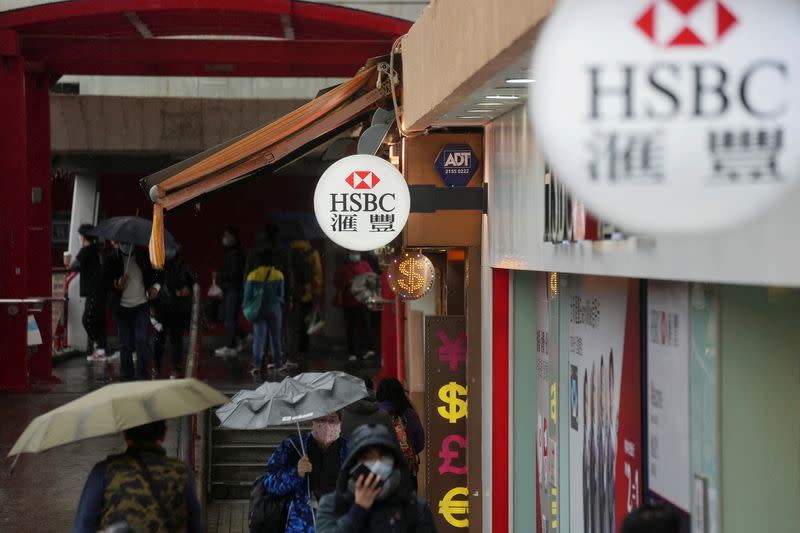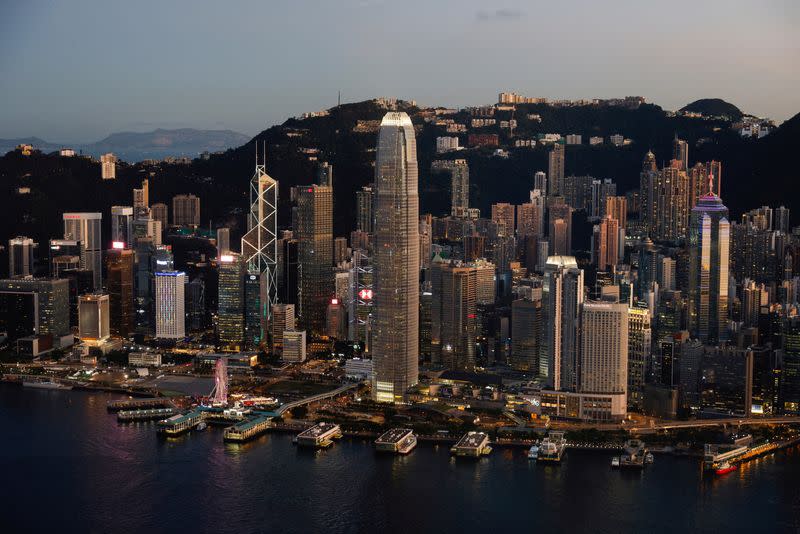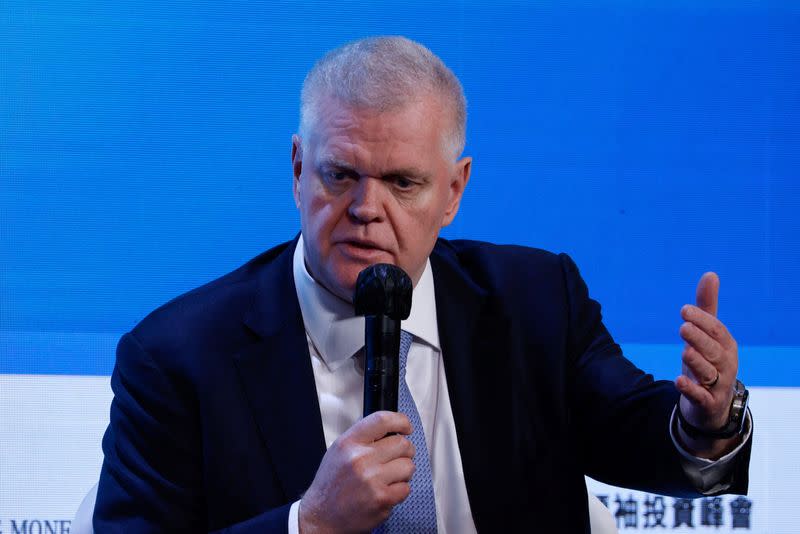HSBC must prioritise Asian expertise in surprise CEO search
By Sinead Cruise, Lawrence White, Scott Murdoch and Selena Li
LONDON/SYDNEY/HONG KONG (Reuters) -Under Chief Executive Noel Quinn, HSBC navigated a global pandemic and a push by rebel investors to break up the 160-year bank. His surprise departure is an opportunity to accelerate its strategic pivot to Asia, investors say.
Top of Chairman Mark Tucker's CEO wishlist for replacing Quinn, who gave notice of his departure on Tuesday, should be someone who can galvanise the bank's 220,000-strong workforce to meet those goals in an uncertain global economy and amid rising tensions between East and West.
"I'd expect the candidate would be someone with vast experience in Asian and Middle East markets, who is open minded on the bank's strategy and could re-consider the option of re-domicile HSBC's headquarters to Asia," said Simon Yuen, Hong Kong-based founder of Surich Asset Management.
HSBC, Europe's largest lender by assets with a balance sheet of $3 trillion, is increasingly betting on its historic Asian ties to raise profits, as competition crimps revenue growth in other regions.
Since the financial crisis of 2008, HSBC has already shrunk its global footprint by around a quarter, exiting low-growth markets to plough capital and resources into Asia.
Nevertheless, pressure is mounting on HSBC to reassert its position before ambitious Chinese rivals steal more of its customers and slowly erode its Hong Kong dominance.
Quinn, 62, will relinquish his role by April 2025, handing Tucker his third search for an HSBC CEO, a role several industry commentators have branded the toughest job in banking.
"A lot of the world's wealthy and high net worth individuals are based in Asia which means HSBC should put their first priority and major business focus in Asia, particularly China markets," said Yuen, who did not disclose his firm's holdings.
India and Dubai should be next in its focus, he added.
A source familiar with the matter told Reuters there was no live discussion on the location of HSBC's global headquarters and the issue had not been on the board's radar for some time.
Although Quinn was head of Commercial Banking for Asia-Pacific in Hong Kong between 2011 and 2015, some sources said he was short of the broad Asian experience believed necessary to fulfil the bank's potential in the region, and appease its increasingly vocal investor base.
Ken Lui, a Hong Kong-based activist shareholder, who backed a recent campaign by HSBC's largest shareholder Ping An Insurance Co to spin off its Asia business, is also looking for a leader more familiar with Asia.
"The group should consider candidates in Asia or Hong Kong, who have better experience doing business in the region...For our small shareholders, HSBC is a Hong Kong company," he said.
Reuters was unable to verify if Lui still held shares.
HSBC has several contenders to succeed Quinn, analysts, investors and industry sources told Reuters, with Chief Financial Officer Georges Elhedery and Global Banking & Markets boss Greg Guyett seen as front-runners.
Its leading Asia-based executives, Surendra Rosha and David Liao, are currently seen as unlikely to make Tucker's final shortlist. Nor are the only four women on HSBC's senior management team.
HSBC has historically only ever appointed a CEO from within but analysts at Citi on Tuesday flagged several potential senior external candidates with HSBC experience including Singapore based-OCBC CEO Helen Wong, Lloyds Banking Group CEO Charlie Nunn, and former Standard Chartered investment bank chief Simon Cooper.
A spokesperson for Nunn declined to comment. Cooper and Wong could not immediately be reached for comment outside normal Asian office hours.
TUCKER'S TASK
HSBC's new CEO will have several other business challenges to overcome, not least peaking interest rates and unrealised ambitions in wealth and asset management, where banks worldwide are chasing recurring fee income to offset volatile investment banking earnings.
Meanwhile, Asia continues to lurch between HSBC's biggest prize and its biggest worry. In February, it reported a shock $3 billion charge on its stake in a Chinese bank, after a surge in the volume of troubled loans across the country.
Even as its European turnaround begins to bear fruit, Asia remains the bank's most promising engine for profit, and where it hopes a real estate market slump is already in reverse, laying the foundations for lending and investment banking growth.
Quinn's replacement will also need the ability to reunite senior executives overlooked for the role and forge an even-closer relationship with Tucker, who some British analysts have described as "HSBC's only boss".
"(They need) someone who can work well with Mark Tucker," said Stanley Tsai, founder of investment advisory firm Antler Capital.
"A large cross section of shareholders would probably want someone with deep Asia background. Now that they've made it clear there's no way they'll spin that off, that may at least placate some dissenting voices," Tsai added.
($1 = 0.9336 euros)
($1 = 0.9357 euros)
(Additional reporting by Xie Yu and Stefania Spezzati; Editing by Alexander Smith)

 Yahoo Finance
Yahoo Finance 


